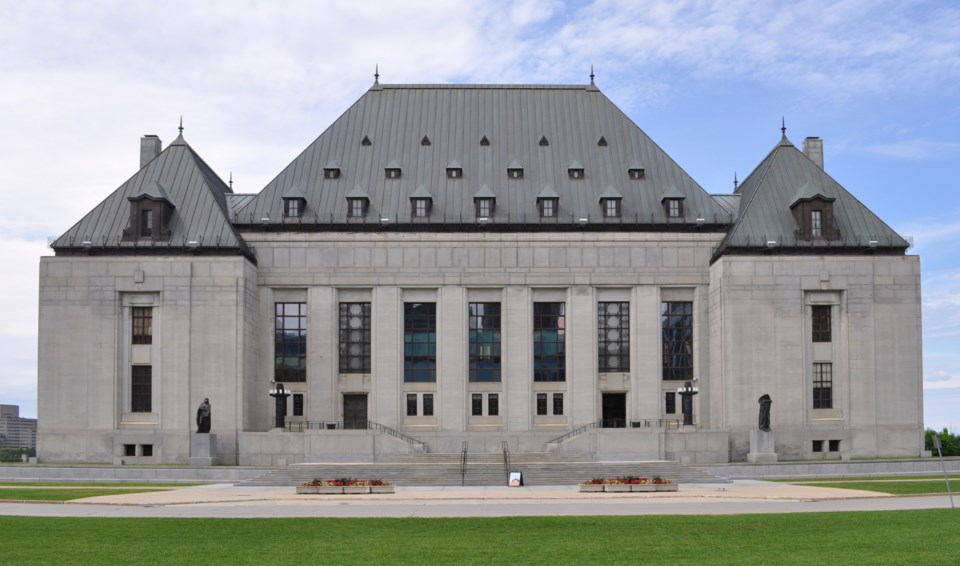The Supreme Court of Canada has concluded that while Ontario has the discretion to increase annuities under the Robinson treaties, the Crown's discretion can still be subject to review by the court.
That's one of the key takeaways from the judgment handed down by the country's top court Friday morning as part of Ontario's appeal of the Stage 1 and Stage 2 decisions in the treaty annuities claim that were originally heard in Ontario Superior Court.
The court also concluded that despite the province's argument, the Huron and Superior plaintiffs’ breach of treaty claims are not statute-barred by Ontario’s 1990 Limitations Act.
A cross-appeal launched by the Huron and Superior plaintiffs dealing with the fiduciary duty of the Crown was dismissed. The court, however, awarded the plaintiffs the costs of both their appeals and cross-appeals on a solicitor-client basis.
Further direction has been given to the Crown to to determine an amount of honourable compensation to the Robinson Superior plaintiffs for amounts owed under the annuities for the period between 1875 and the present.
The Supreme Court made the following declarations as part of its judgment:
- Under the Augmentation Clause of the Robinson Treaties, the Crown has a duty to consider, from time to time, whether it can increase the annuities without incurring loss.
- If the Crown can increase the annuities without incurring loss, it must exercise its discretion as to whether to increase the annuities and, if so, by how much.
- In carrying out these duties and in exercising its discretion, the Crown must act in a manner consistent with the honour of the Crown, including the duty of diligent implementation.
- The Crown’s discretion must be exercised diligently, honourably, liberally, and justly. Its discretion is not unfettered and is subject to review by the courts.
- The Crown dishonourably breached the Robinson Treaties by failing to diligently fulfill the Augmentation Clause.
- The Crown is obliged to determine an amount of honourable compensation to the Superior plaintiffs for amounts owed under the annuities for the period between 1875 and the present.
In a news release issued Friday, the Robinson Huron Treaty Litigation Fund (RHTLF) said it was "very happy" with the decision, which "vindicates the essential position taken by the the RHTLF throughout this litigation."
It also noted that Robinson Huron Treaty leadership was "wise to negotiate a settlement agreement regarding past compensation in the face of the uncertainty of the outcome of the Ontario appeal to the Supreme Court of Canada."
“The Supreme Court of Canada (SCC) decision is a balanced result. The decision highlights the need for Canada and Ontario to reach a fair settlement with Robinson Huron Treaty (RHT) First Nations for the implementation of the annuities augmentation clause of the RHT going forward," said Litigation Management Committee member and Sagamok Anishnawbek Ogimaa (Chief) Angus Toulouse. "The Robinson Huron Treaty leadership call upon Prime Minister Trudeau and Premier Ford to honour the commitment included in the past compensation settlement agreement to renew the treaty relationship and as well as the commitment by Canada and Ontario to fulfill the treaty promises of the Crown relating to the annuities augmentation clause for the future.”
The treaties were signed in 1850, ceding a large swath of land to the Crown in return for annual payments to the Anishinaabe of Lakes Huron and Superior.
The treaties included a clause that states the payments should increase over time, so long as the Crown did not incur a loss, but they have been frozen at $4 per person since 1875.
An Ontario Superior Court judge ruled the Crown violated the treaties and that it had a mandatory and reviewable obligation to raise the payments as the land was developed.
The Ontario Court of Appeal upheld most of the trial judge's findings, ruling that the Crown violated its promise to share resource revenues.
The Crown appealed and the case was heard in the Supreme Court of Canada in December.
In June 2023, the Robinson Huron litigation group reached a $10-billion settlement with the Ontario and Canadian governments for past claims. It has not yet dealt with the issue of how much the payments should be going forward.
That settlement was finalized in February, with the court agreeing that Ontario and Canada should each pay $5 billion. The Robinson Superior group, meanwhile, has asked for more than $126 billion in damages.
A portion of the proceeds from the historic settlement for Robinson Huron Treaty beneficiaries is expected to be distributed to 21 First Nations in August.
- with files from The Canadian Press
